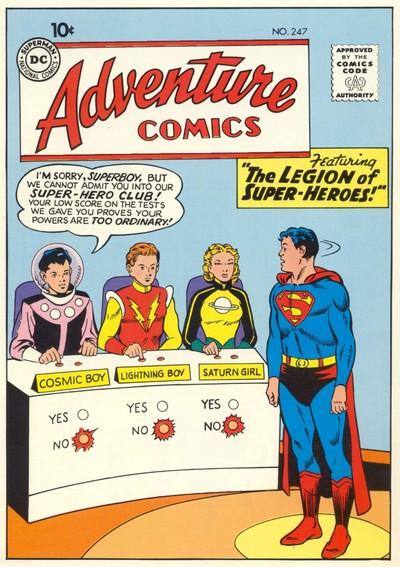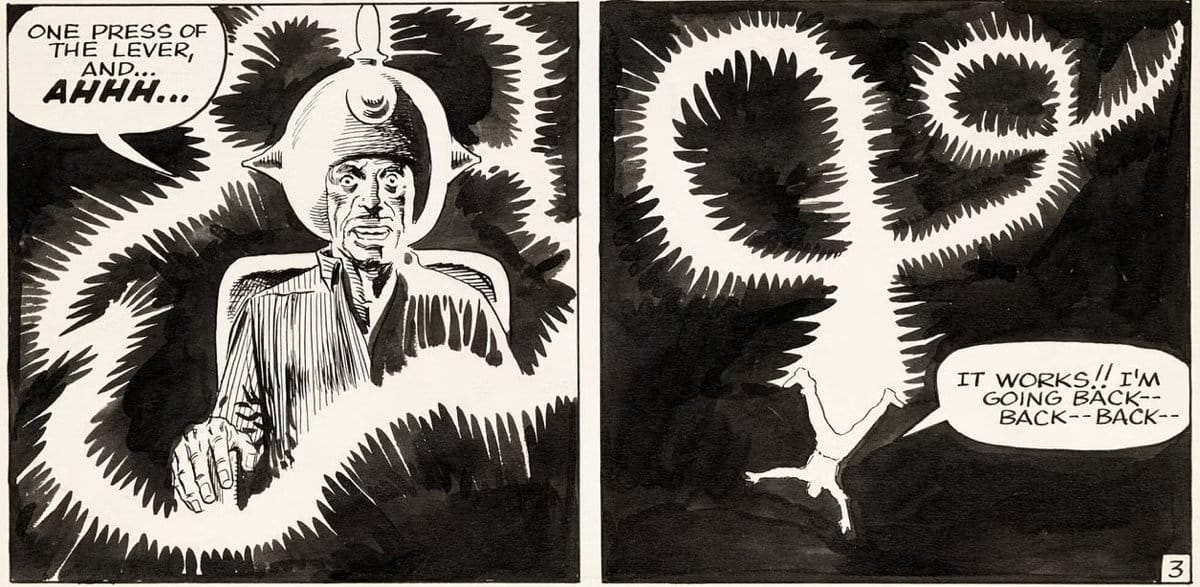A new framework for volunteering raises serious questions about law and business strategy.
The Beat’s recent articles on volunteering at Dragon*Con and Phoenix Comic-Con highlight an interesting new approach to legal limits on for-profits using free labor: requiring volunteers to pay to join a membership organization, such as a nonprofit social club exempt from federal taxation under Section 501(c)(7) of the Internal Revenue Code.
It sounds like a clever strategy. After all, comic-cons occupy an an interesting space in regard to volunteering. The archetype of the comic-con in the US, Comic-Con International in San Diego, is run as a tax-exempt charity under Section 501(c)(3) of the tax code, and charities are also exempt from certain aspects of the Federal Labor Standards Act when it comes to volunteers and the minimum wage. While for-profits may in certain circumstances have unpaid interns (e.g., as part of an educational program), they do not have the same freedom to use volunteers as charities. Requiring volunteers to join a nonprofit would seem to provide a clear way to get around laws requiring for-profits to pay would-be volunteers minimum wage for their work.

One issue raised by requiring volunteers to pay to join an affiliated nonprofit is that the type of nonprofit being used to organize volunteers may not actually meet the criteria for exemption from federal and state minimum wage laws. For example, the federal Fair Labor Standards Act provides volunteer exemptions for educational, humanitarian, and certain other activities by charitable nonprofits; however, a social club, while nonprofit, is not a charity, and providing volunteer assistance so a commercial business can keep its costs down arguably does not qualify as educational, humanitarian, or charitable activity.
On a related front, one of the criteria set forth by the Department of Labor for unpaid internships is that the work is not to be done for the company’s benefit; the educational purpose is paramount. Exempting volunteers from paying a membership fee if they have a special skill beneficial to running the con could be seen as proof that the volunteer position was merely designed for the company’s commercial benefit.
Another concern falls outside labor law — namely, whether a social club formed to help a for-profit get free volunteer labor qualify for tax-exemption if the IRS knew the true focus of the organization’s purpose and activities, particularly as presented in marketing material apart from the application for tax-exempt status. For example, under federal law a social club is an organization designed to serve its members, not the general public; the paradigmatic expression of this is a private club with defined membership criteria and a facility generally closed to non-members. IRS guidelines for agents scrutinizing social clubs expressly state that “organization and operation of a club in a manner which constitutes a subterfuge for doing business with the public is inconsistent with the term ‘club’ as used in IRC 501(c)(7) and disqualifies it from exemption.”
Similarly, the guidelines disqualify organizations in which the club is formed to circumvent other statutes — and creating a membership organization so a for-profit can avoid paying minimum wage could be seen as huge red flag. Evidence that an organization is a sham, not a legitimate social club, is that it lacks substantial membership requirements and charges a minimal membership fee. Moreover, if the club’s recreational and social facilities are open to the public — as most if not all conventions are, irrespective of ticket shortages — that too could be seen as wholly inconsistent with a social club’s exempt purposes.
Last but definitely not least, there’s the question of whether a court or regulatory agency would disregard the club’s separate legal existence on the grounds that the club is nothing more than an alter ego of the for-profit company. Consider the practice of waiving the membership fee for volunteers who pay for admission — one could argue that this is clear evidence that the membership organization and the commercial company running the con are one and the same.
Given the issues that could arise with a club or amorphously defined membership nonprofits, it could be more prudent to use other organizational strategies for accommodating volunteers — strategies that might not be as easy to put in place but would have a greater chance of surviving regulatory or judicial scrutiny. Assuming that paying volunteers is not feasible — though there are ventures that do so — there is a rubric with the law regarding charities that could work, though there would need to be careful strategic line-drawing and management. It could also be possible to set up a cutting-edge educational volunteer program in conjunction with schools and internal initiatives; again, not bulletproof, but done well (and with insurance against a lawsuit), there could be enough markers of educational and charitable purpose to keep regulators and judges happy.
Again, this is not legal advice, and for-profit volunteerism is an area of law now in considerable flux. If there are lawyers with a different opinion I’m happy to hear their responses to the above concerns — feel free to fire away in the comments and I’ll do my best to reply.









Having not read the article, I feel I’m therefore qualified to comment. (hey, it’s the Internet).
But have to wonder if this is related to the recent lawsuits against companies who “employed”unpaid Interns. A few lawyers, and plaintiffs, made some cash, but in the long run, a lot of people would lose out, not being able to gain invaluable experience.
It is indeed related! This has become a hot issue, with lawyers (not me, though) out looking for folks willing to front a lawsuit and regulators scoping for potential enforcement actions. The way commercial cons have been promoting this pay-to-join-a-club-to-volunteer is essentially waving a giant red flag at two bulls.
And you’re right about it hurting the folks who want to gain contacts, experience, even admission via volunteering – the law wasn’t designed for fan culture.
This ruling may kill off the small mom and pop gaming conventions. We started one last year and lost money (expected) – if we have to pay our volunteers, we wouldn’t be able to have a second one. We’re in a rural area and while we had a good turn out the volunteers are what made the con a success in the attendee’s eyes. I don’t know how we can make this work.
Deb, this is one reason why it’s good to get legal advice tailored to your specific situation. Is the convention for-profit or nonprofit? If nonprofit, there could be a way for it to qualify as charitable – purpose and activity descriptions are key here.
This Nolo page provides more info re when the minimum wage applies federally. State minimum wage thresholds are also relevant. http://www.nolo.com/legal-encyclopedia/employers-pay-minimum-wage-law-29600.html
As for your broader point, indeed — the law doesn’t do a great job of balancing the various values at play in fan/hobby gatherings. It doesn’t see that volunteers & attendees are receiving intangible, even unquantifiable value through the prevailing structure — it just focuses on the value of individuals getting financial compensation for their time.
Of course ‘Americans’/consumers would love to pay to work at a comic-con, being pretentious, and making an effort to exclude others is part of being a bigot from this fake country.
Here’s a crazy question – if volunteers are so key to making a con successful then why do the same people that think so feel volunteers shouldn’t be paid?
Interested, it’s often a matter of size. The logistics of running a relatively small conference can be rather complex, especially if you want it to be a good experience for vendors and attendees alike. However, the financial return is often proportionally not that great once you get past the larger players, especially SDCC and Reed (which, IIRC, pays people to work the conference).
Comments are closed.